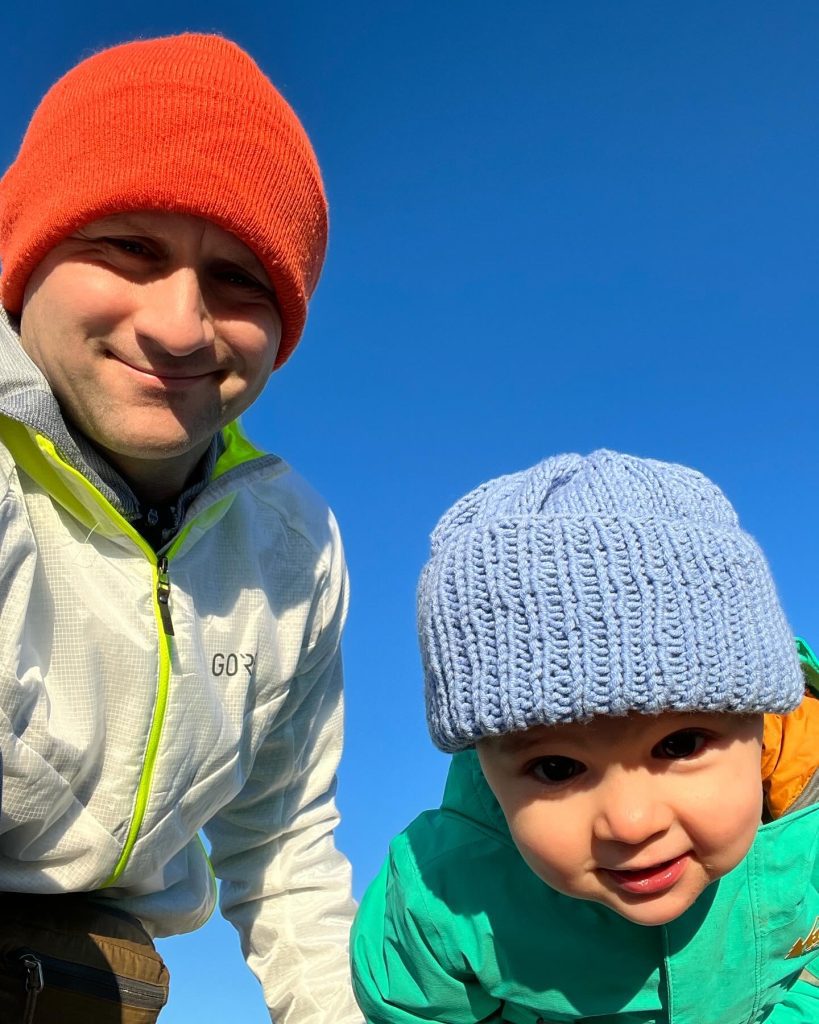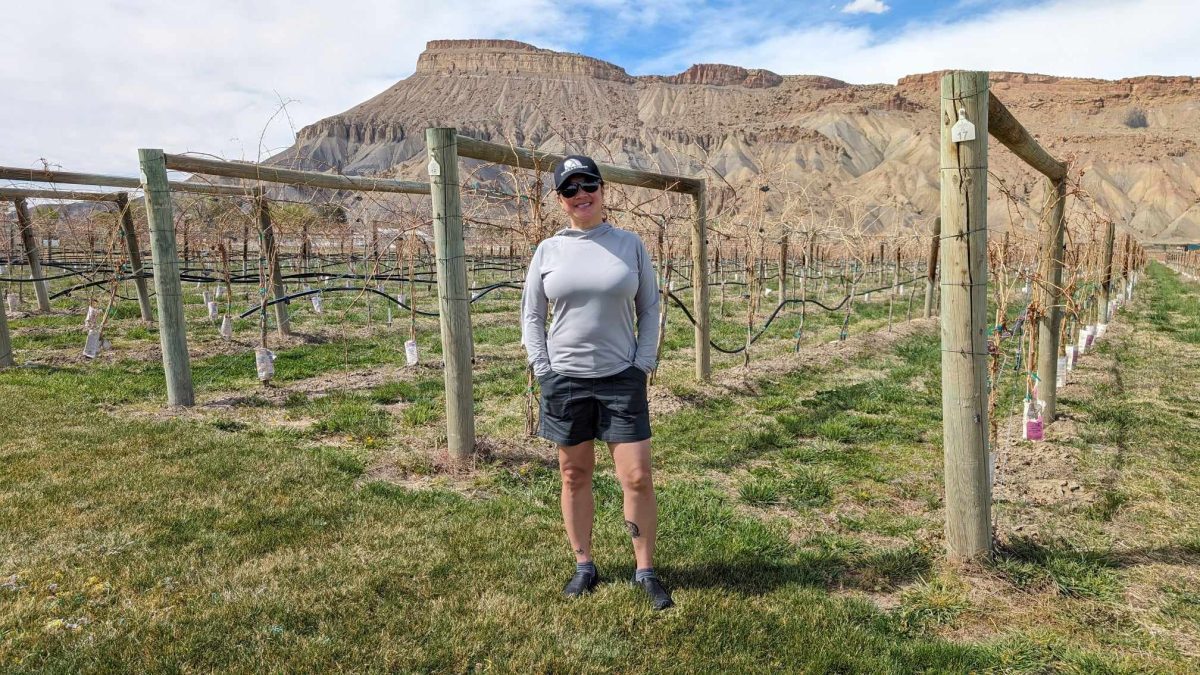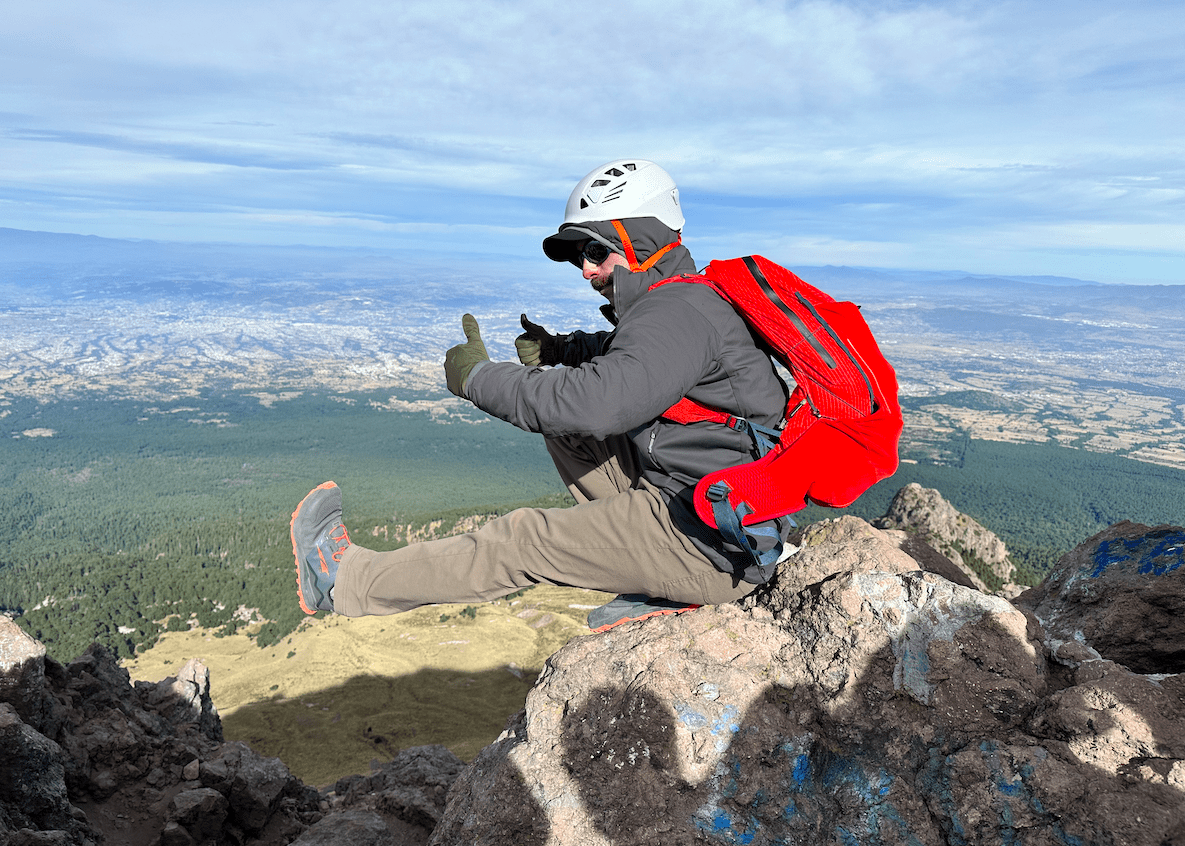One Year Later: Mental Rehab After a Major Sports Injury
By Kate Agathon
NOTE: One year ago this week, Kate tore her ACL while skiing. In this narrative, she shares her struggles with psychological recovery after experiencing a major sports injury.

Outdoor recreation enthusiasts are a superstitious bunch. There are certain things that go unsaid. For example, cyclists do not openly proclaim how long it has been since they’ve experienced a mechanical, hikers do not take photos until after the summit has been reached, and skiers do not ever say “Last run of the day.”
Pre-injury
That’s where I made my mistake. I did the taboo. I did what skiers are never supposed to do- I said those cursed words out loud. Twenty minutes later, I was face planting in the snow, spread out in the Super Man position and didn’t want to get up. I knew my knee would not support me.
I had felt that feeling once before- two years prior, in fact, when an inexperienced teenaged snowboarder lost control and slammed into me at Keystone. Ironically, that too had been the last run of the day. On that day long ago, I had enough adrenaline rushing through me that I was able to ski down the mountain, but it was soon followed by excruciating pain by the time we reached the parking lot. An MRI scan revealed later that I had torn my left medial collateral ligament (MCL).

Post 🙁
Now that I had lost not one, but both knees to injury after announcing the last run of the day, I was fully convinced the superstitions were true.
The day at A-Basin had not started out well. My first run ended in a major yard sale tumbling down Montezuma Bowl, followed by a series of uncharacteristic mishaps and overall unsteadiness throughout the afternoon.
As I lay there sprawled in the snow, memories of that other unfortunate ski day flooded into my head. As if on cue, hot tears of frustration filled my eyes, rolled down my cheeks and into my ski goggles. My stomach was lurching. My heart pounding. I knew (or at least thought I knew) what had happened- this was not an injury that was going to disappear in a few days.
If you get up, you’ll know you’re out. Just stay down, said the voice of denial inside myself. What I didn’t know at that time was that the injury was far worse than what I had initially imagined- it wasn’t an MCL tear, it was a full tear of the anterior cruciate ligament (ACL) and a meniscus fray. I was not only out for the ski season, I was out for both cycling and hiking seasons.
Denial
For a month, I told myself and my friends that it was just an MCL tear. The summer of peak bagging 14ers and organized cycling events would go on as planned. I was delayed, that’s all. Except that’s not what happened. As the weeks passed, my right leg swelled, and no progress was made.

Reluctantly, I finally got an MRI done. When my doctor informed me that it was not an MCL tear, but rather an ACL tear that required surgery, I felt numb. I timidly asked in the smallest of voices, “What about cycling season?” Without emotion, he replied “Not this year. One year from now. Same for skiing.” ONE YEAR? I had been thinking I would be inconvenienced for a couple of months, not 9 to 12 months!
Tears came out of nowhere in a fast, steady stream. I cried to the point where I began to hyperventilate. I was in disbelief. What do you do when your entire summer is over before it begins? Worse still, I occasionally wrote gear reviews and I also relied on riding a bicycle as my principle mode of transportation (I had given up my car years ago).
Everything I did required being physically active. My very identity was based on physical activity. What the hell was I going to do? Last time I got injured, I had a boyfriend taking care of me as I recovered. This time around, I was freshly single. No 24-7 boyfriend support system. I was alone and living in a place that I had moved into only two weeks before.

Despondence
For days, my Facebook wall blew up with encouraging messages from friends, stories about how quickly they recovered from their ACL injuries, and a slew of physical therapist recommendations.
Momentarily elated, I felt like I had earned my stripes- my legitimacy as an athlete was confirmed by blowing out my knee. I even joked that my right knee felt like it not only had to catch up to my left knee being injured but had to outdo it.
Underneath the highlight reel of positivity that I projected on social media, I became moody and despondent. No one told me that when you have a major sports injury, your mind requires rehabilitation too.
Initially, I put on my tough gal face. I told my cycling buddies not to cancel plans to ride the Moab Century in September because I’d be there. I informed my hiking buddies that 14er No. 25 would be postponed until early Fall.
Also, I decided that I would pass the time reading books. I asked my academic friends to send review copies for me to critique for their journals. For the gear review site, I suggested an ACL recovery milestone update in place of gear that I could no longer physically test. Not one of those ambitions came to fruition. In retrospect, I ask myself What was I thinking?!
First, I had never undergone surgery before. I was unprepared for the heavy-duty painkillers and how physically weak I would be. Second, depression began to set in. Deep depression. Why did no one speak about this part? What was wrong with me?
Stuck in the basement of a split-level house, there was too much time to think. I had nothing to do but ruminate over the end of a 6-year romantic relationship that had taken place only a couple of months prior. I could not bear to look at photos of friends cycling, hiking, or camping. It hurt too much- I was, in a sense, grieving. I felt as if I had lost everything important- things that defined who I was.
Although my mother stayed with me for a week after the surgery, and I had friends stopping by regularly to take out the trash and do grocery runs, I was alone. Even Utah, my blue heeler dog, was temporarily staying with a friend until I was strong enough to walk her.
Leg propped up on a wall of pillows, I sat in my bed and wallowed in self-pity. I could barely hobble to the bathroom, let alone negotiate a handful of stairs. I was literally avoiding making the small steps necessary towards my recovery.
My room smelled like a candle store because I had candles burning constantly to mask the odor emanating from my body that hadn’t been near a shower in two weeks. I didn’t care. I was in all sense of the word, alone.
Rock Bottom
I stopped counting how many times I watched Lindsey Vonn’s 2015 movie “The Climb” chronicling her come back after completely tearing her ACL twice. My initial excitement gradually dissipated. I did not have the luxury of having access to the world’s best surgeons, athletic trainers or world-class exercise facilities. Nor did I have a 24-7 cheerleader to motivate me enough to get out of bed, let alone do exercises.
Locked in the psychological prison of self-doubt, I became my own worst enemy. My entire identity -social life, active life, mental health, and stress outlet- all revolved around my active outdoors lifestyle. The very freedom of getting around on my bike was also gone. I sunk further into depression.
Door Dash became my best friend and years of leg muscle I had built up rapidly disappeared. I became despondent. I had no concept of time. Days morphed into evenings without me noticing as I watched hours and hours of Game of Thrones and allowed myself to dive deep into the fandom rabbit hole. I once called my therapist, who advised me to “…Imagine myself as a blue lamp.” I never called her again.
During this time, I gained nearly 20 pounds. I didn’t care. Even when I went to the physical therapist, I felt nothing but shame and frustration that my leg wouldn’t bend or extend. After seeing “model” rock tape-sporting clients who had undergone surgery after I had and were managing a full bend of their knees, I felt even worse. I criticized myself for being physically and mentally weak.
After leaving physical therapy, I would promise my therapist that I would work hard. Which, I had all intentions of doing… after I stopped by my favorite ice cream shop, located a mere three blocks away.
In public, sometimes strangers who had experienced ACL tears recognized the clunky Robocop leg brace and approached me. Every single one of them vowed to never return to the sport where the injury had occurred for fear of setting their lives back another year.
They all ended their tale by looking me straight in the eye and earnestly remarking that any return to skiing was a bad idea; especially since I had endured two major knee injuries in three years. Curiously, in all these instances, not once did the word “depression” appear.
Recovery
Dealing with the physical recovery was bad enough, but the psychological recovery was far worse.
No one told me that crossing a street or walking one block would seem impossible. Or simply going to the bathroom would be an ordeal. I found myself comparing my recovery to those of others (never a good idea). Basically, I was woefully unprepared for how frustrating it would be.
Psychological and physical setbacks felt innumerable. One of the few times my emotional state was healthy, I somehow managed to screw that up too. This culminated in late July when I accidentally left a cryo cuff on too long after a lunchtime workout and somehow managed to get frost bite. Let me repeat this for effect: FROST BITE. Three large second-degree thermal burns (ranging from 2 to 5 inches across) quickly appeared and it set my recovery back a month because of severe blistering.
The turmoil going on inside my head was constant. Some of my friendships grew strained when they grew tired of hearing me complain. Even when I eventually returned to work, I felt mentally checked out. The simplest tasks that I could once perform seemed insurmountable.
Initially, what I needed to do the most (maintain a regular sleep schedule and perform strength and flex exercises at home), I could not bring myself to do. As my physical recovery gradually improved, the psychological recovery lagged- constant fatigue and a sense of being overwhelmed were omnipresent.
Final Thoughts
Life does not stop for depression.
The turning point for me was in late August when I was able to ride a bike again. Once I had that freedom returned, it helped me to address and combat the depression.

ACL tears are commonplace. News writers speculate how long a professional athlete will be benched, friends tear ACLs skiing, playing soccer or basketball. Yet physical recovery dominates the conversation. Absent from the discussion is psychological recovery and regaining a sense of self.
This October I watched in horror Brooklyn Nets point guard Jeremy Lin’s stunned reaction seconds after he ruptured his knee in the season opener against Indiana. In an instant, his face went from disbelief to one of agony- the dreadful realization that his season was over.
I cried when I saw the video replay. I could only guess what must have been going through his mind. Yet after the initial slew of articles about the season-ending prematurely for Lin, no mention was made of the steps he was taking towards psychological recovery.
Lin did not talk to the U.S. media about his ruptured patella tendon until nearly four months after that game. The articles that followed portrayed Lin as positive and determined to come back. None of them addressed the internal anguish he must have been feeling- after all, his most recent seasons had been accident prone. “Highlight Reel,” I said to myself, “Definitely highlight reel.”
Literally one year later, I am riding my commuter bike, mountain biking, and road biking. I am dead last on all my group rides and I am nowhere near the athletic ability I had prior to the ski accident. Competitive by nature, I must convince myself that it will take even more time -another year perhaps- to regain lost physical strength and shed all the weight that I gained from being inactive.
Every ride I take is one mile closer to reclaiming my former self- physically and mentally. Like steps towards physical recovery, one cannot easily bounce back from depression associated with the injury. It takes time. A ridiculous amount of time.
The combination of psychological and physical recovery is daunting and can take months. How does one explain to an employer, to friends, to professional organizations to which you belong that depression can rob you of motivation, reliability, creativity, and confidence? That you’re barely able to keep it together?
It takes courage to admit that mental rehab is crucial to recovery. I keep waiting to hear what Lindsey Vonn and Jeremy Lin do for mental coping strategies. How do they somehow muster the mental strength necessary for a full recovery? How do they even function?
Not talking about frustrations or psychological recovery is doing those whose identities are shaped by active sports a disservice. By sharing my narrative, I want to underscore long-term psychological damage that comes with recovering from a major athletic injury. Let’s keep it real.






Leave a Reply